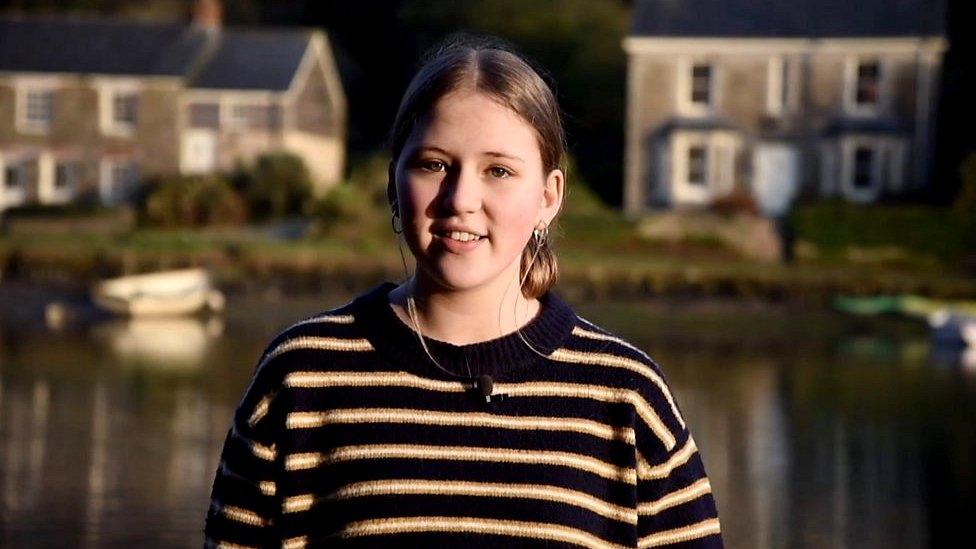Tourette's in Wales: Teens with condition say they get no help
- Published
Megan Jones has not been to school since June because of her tics and seizures
Children and young people living with Tourette's syndrome in Wales say they need more support from the Welsh government.
Megan Jones, 17, from Carmarthenshire, told BBC Wales there is a "lack of knowledge and a lack of help" for people like her.
There is currently only one specialist in Wales, who does not treat children.
The Welsh government said it was reviewing services and a new framework will improve access to support.
Hywel Dda Health Board, which covers Ceredigion, Pembrokeshire and Carmarthenshire, has been asked to comment.
'Loads of tests but no answers'
Megan, from Llandysul, started experiencing tics in February last year.
"Head jerks... I whistle loads, when I say 'whitwoo' people know it's me. I punch things, I fall, I have loads of bruises... I click, I chat, I swear," she said.
In May she started experiencing seizures, which now occur on a daily basis and are "frustrating".
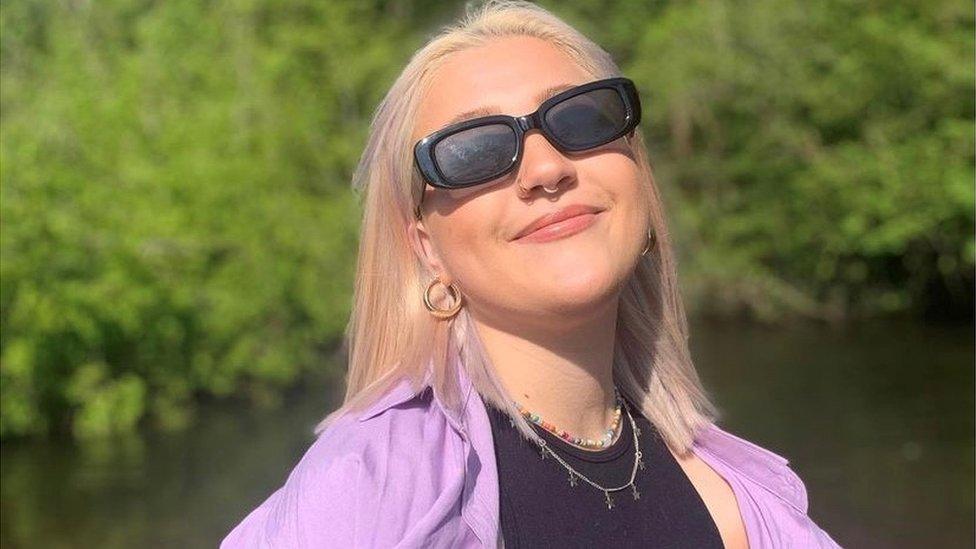
Megan Jones, 17, said there is not enough support for people with Tourette's Syndrome
"They're really bad, and it's really dangerous," she said.
"School don't let me go down town and off campus until I'm on the bus, and then on the bus I have friends who know everything they're supposed to do, and the bus driver knows everything too.
"It's really annoying, all of my friends are learning to drive, and I'm desperate but I can't, and that's the one thing I really want to do - I want to travel more, see the world, and I can't do that, I have no independence.
"It makes me sad and angry, I haven't asked for this."
Megan said she had been for "loads" of tests, but months later has had "no answers".
"I've had loads of tests, I ring and I ring and I ring, and there's no information," Megan explained.
"They still haven't had the results of my tests that I had months ago, and it took five months for me to even get the tests."
'It's horrifying'
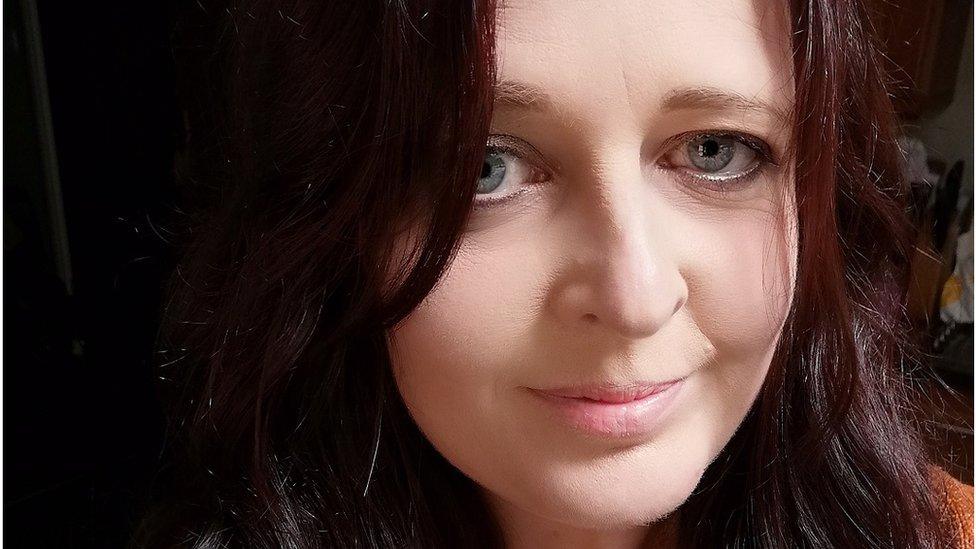
Helen Reeves-Graham has started a petition asking for a children's specialist in Wales
Helen Reeves-Graham, from Pembrokeshire, has started a petition calling for a children's Tourette's syndrome specialist in Wales.
She decided to start the petition after her 13-year-old daughter developed the condition during the first lockdown.
"Watching your child hitting themselves or not being able to hold a cup, or you know, be able to go to school, it's horrifying," she said.
"At the very least, we need access to a specialist in Wales.
"Our paediatrician is great, but she's asking me questions... I'm not a medical professional, I don't know what's what."
Speaking to BBC Radio Wales Breakfast, she said that "for children, there is no specialist for Tourette's in Wales".
"There is one for adults, he actually works part time as a GP and part time as an adult neurologist.
"Most of my information comes from trawling the internet, from charities and from other families who are going through the same thing."
She added she would like to see specific guidelines: "I think that's probably the first thing that needs to happen, so people know where to go and what's going to happen - it doesn't matter where you live."
Ms Reeves-Graham has started a Facebook support group for people living with or caring for people with Tourette's syndrome in Wales.
"There's absolutely nothing," she said.
"I set up my own group... so I've got different other families that are willing to share their experiences, to help us and we'll help them.
"I don't know what to do without them."
Megan said a lack of support was stopping her from living the life she wanted to live.
"I want help really, I want a solution, to move forward, to go to university, and to go out into the world knowing what's wrong, knowing how to deal with it, especially when I'm on my own. It's really hard."
The Welsh government said: "We are committed to ensuring all children with a neurodevelopmental condition, including Tourette's syndrome, can access the services and care they need.
"Regional Partnership Boards are rolling out a new framework to improve access to the right support.
"As pressures on assessment and support services continue to increase, we are reviewing all children's and adults neurodevelopmental services, to identify where there are gaps in provision and the demand, capacity and design of services for children, young people and adults. This work is due to be completed by March."

MOTHERS, MISSILES AND THE AMERICAN PRESIDENT: The story of Greenham told like never before
FIERCE AND FABULOUS: Hayley Goes... exploring the issues of her generation in a brand new series

- Published22 September 2021
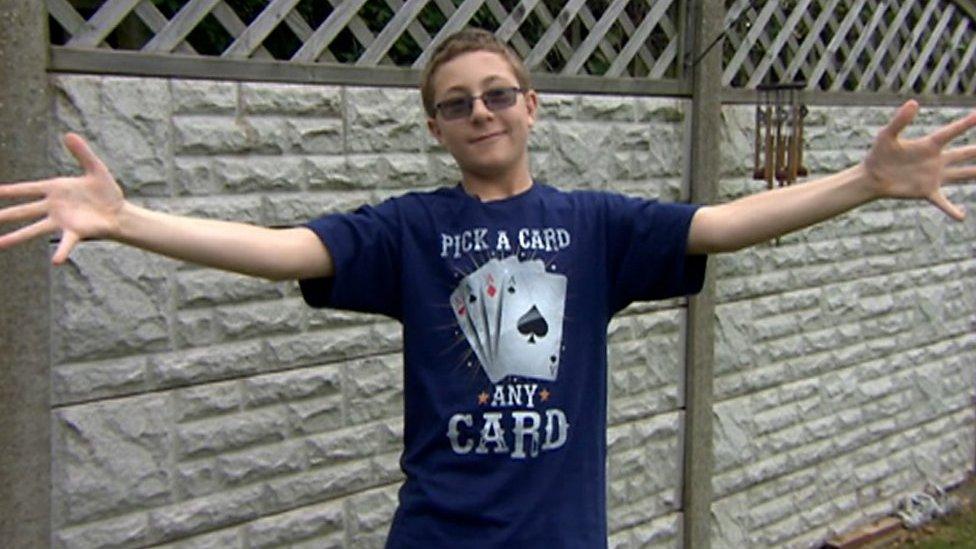
- Published12 August 2021
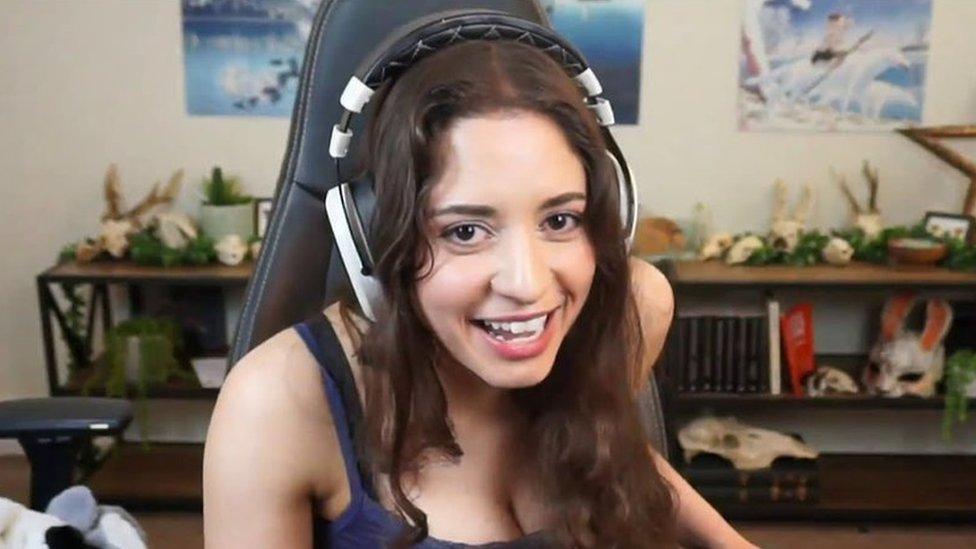
- Published25 January 2021

- Published7 June 2021
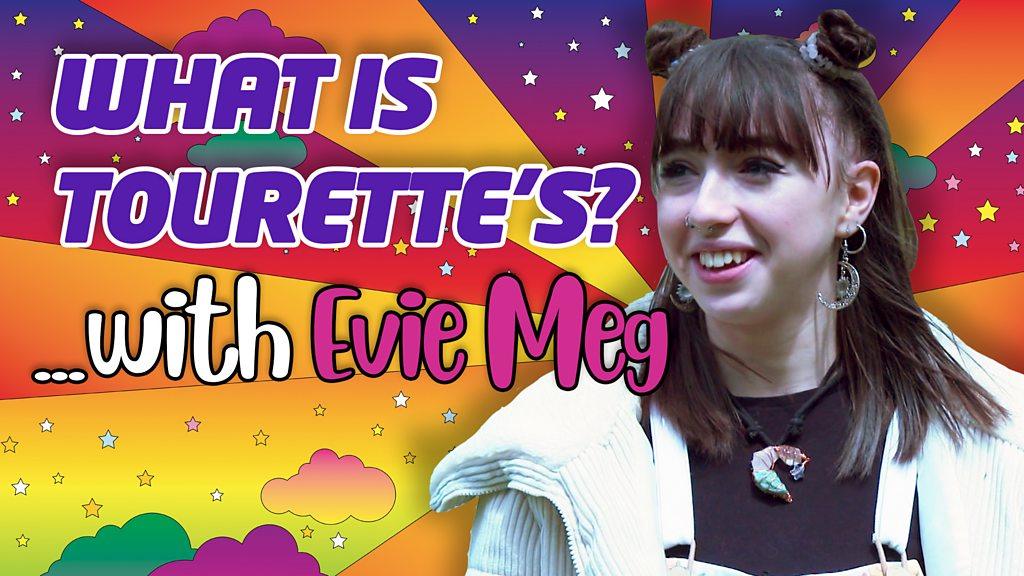
- Published16 March 2021
